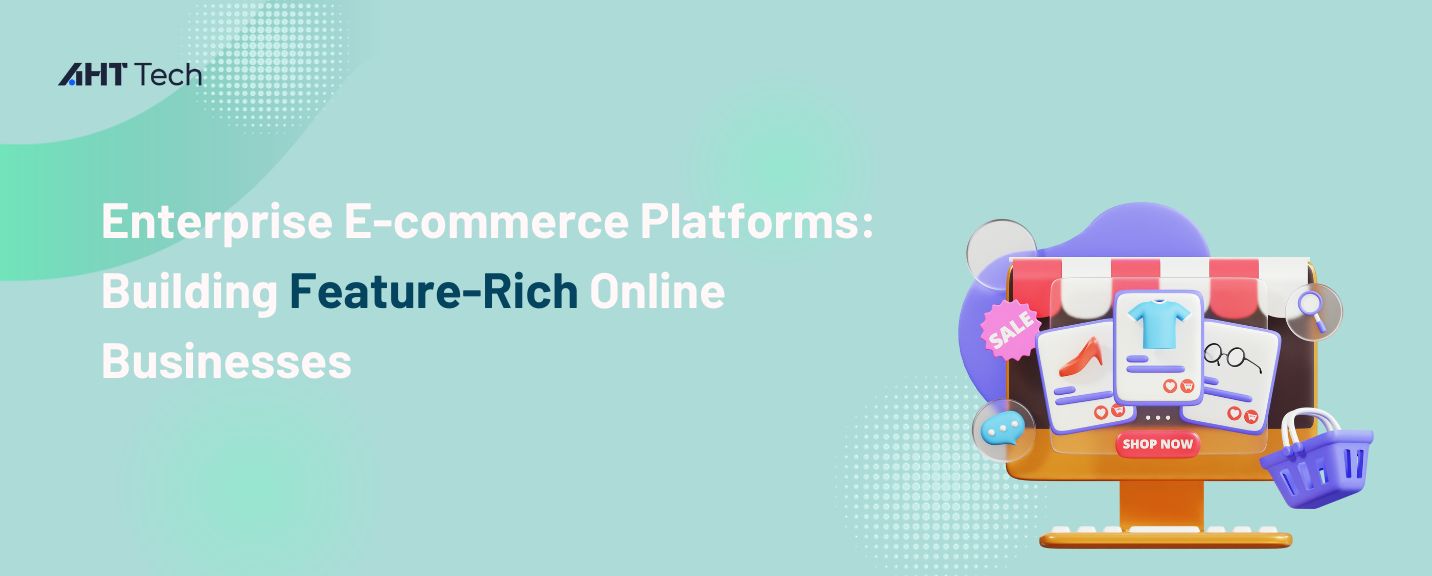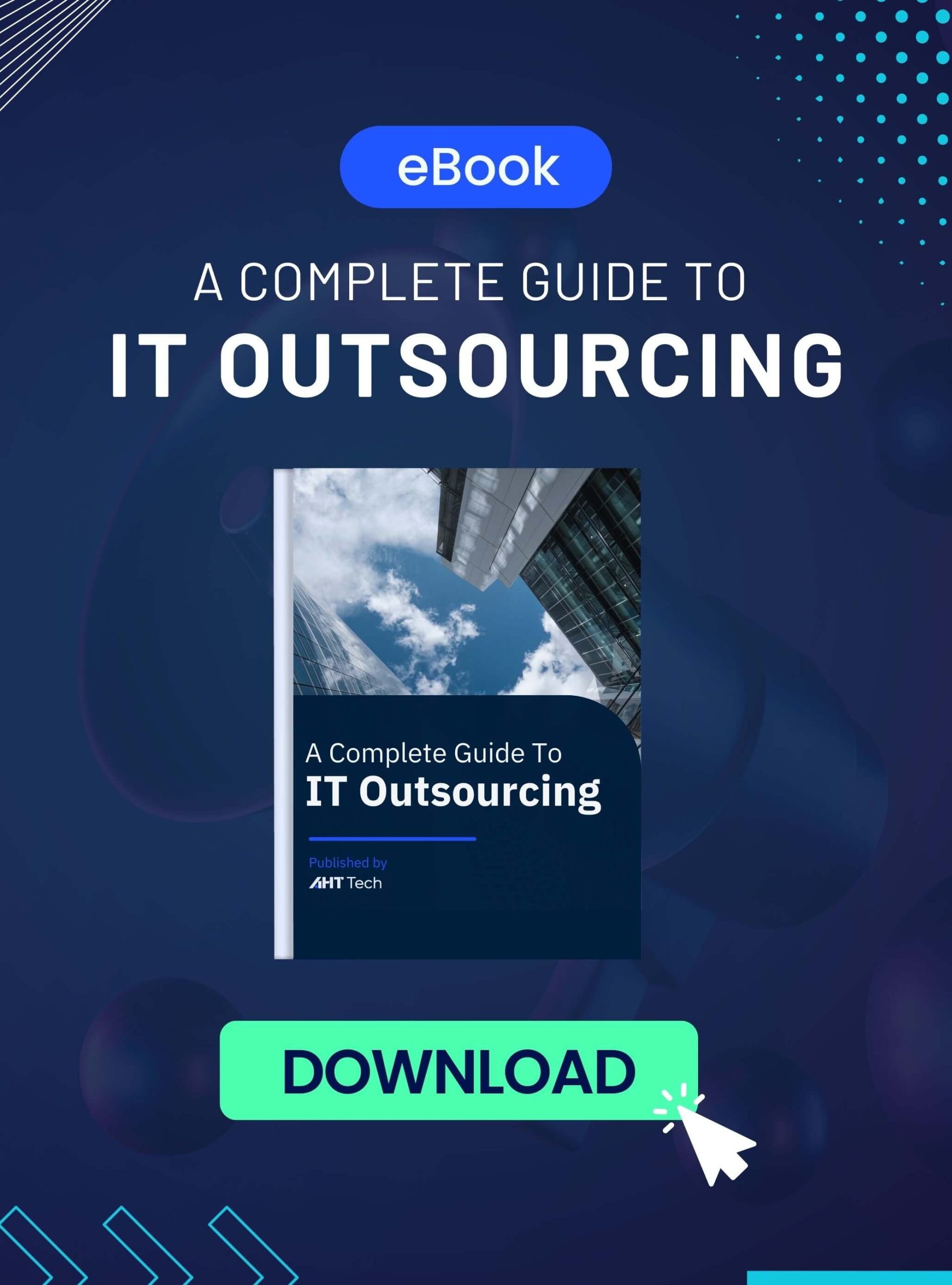TABLE OF CONTENT
What is an Enterprise E-commerce Platform?
Types of Enterprise E-commerce Solutions
Benefits of Using Enterprise eCommerce Software
What are the Best Enterprise E-commerce Platforms?
How to Select an Enterprise E-commerce Platform for Your Business
Conclusion
What is an Enterprise E-commerce Platform?

An enterprise e-commerce platform is a comprehensive software solution for the complex needs of businesses, especially large-scale online businesses. It provides various functions to manage e-commerce operations, including order processing, product management, inventory control, payment integration, resource planning, reporting and so on. and customer data, analytics and marketing automation. It is very important to meet your exact requirements and it all starts with an e-commerce platform you can trust. These platforms are built to handle high transaction volumes, large product portfolios, and demanding performance requirements.
Types of Enterprise E-commerce Solutions
It is true that each enterprise has different functions and technical to adapt to what businesses need. Enterprise eCommerce software divides into two main types: on-site and cloud-based. Let’s explore them:
Onsite eCommerce software
Onsite or On-premises is defined as located at the site to self-hosting and shifts the responsibility for the code and the server to the owner. With onsite eCommerce software, businesses must spend much money on human-resource to develop and maintain the platform.
Cloud-based eCommerce software
On the contrary, cloud-based eCommerce software is hosted and operated on the cloud. It is comparatively cheaper than onsite, with three kinds:
- Headless: The separation of front-end and back-end creates adaptable and flexible architecture instead of interdependent architecture.
- Open-source: Having an extensive list of built-in features with source code, which allow modification and custom the platform and make your eCommerce website search engine-friendly
- SaaS (Software as a service): Third-party owns the platform and hosts your content for a fee, which avoids huge investments in cloud hosting, maintenance, security, etc…
Benefits of Using Enterprise eCommerce Software
Enhanced Scalability
Enterprise e-commerce platforms built for high-traffic handling and integrated checkout, extensive product portfolio and incremental order processing, and especially integration capabilities with other systems. They are designed to scale with your business and growth roadmap and can not only meet your business needs today without compromising performance but grow with your business. future sales.
Advanced Inventory Management
These platforms provide powerful inventory management capabilities when you have multiple sales channels or warehouse locations, such as full real-time visibility tracking, integration, alert notifications , performance analysis, demand tracking and prediction, automatic reordering, efficient inventory management. This will ensure accurate visibility of inventory, avoiding under- or over-selling to provide the best customer experience.
Robust Security Features
An enterprise e-commerce platform that has always prioritized data security and led industry regulations. To protect customer information and ensure safe transactions, the e-commerce software is designed with advanced security measures such as SSL/TLS encryption to protect the transaction data between the client and the machine. server, track PCI DSS, update security regularly, create authentication environment, run 3rd party security audits, etc.
Seamless Integration
Integrations play a key role in eliminating manual data entry and increasing employee efficiency, tighter control over your business leading to better decisions, less work with systems. separate systems, causing confusion and reduced productivity. As a result, businesses can easily integrate their e-commerce platforms with third-party systems and services such as payment gateways, shipping providers, marketing tools, and CRM systems. .
Personalization and Customization
Enterprise e-commerce platforms for businesses can provide customization options that help businesses optimize the customer shopping experience, tailoring the experience and user interface to meet requirements specifically contribute to enhancing the personalization of your brand. To create personalized features, businesses mostly focus on creating product recommendations and recommendations, tracking and analyzing customer behavior, bonus programs, incentives, promotions. All of them are prioritized for targeting and for marketing campaigns.
What are the Best Enterprise E-commerce Platforms?
When selecting the best eCommerce solution, various factors include business size, industry, budget, scalability needs, and desired features. While numerous platforms exist in the market, here are some of the leading ones:
Magento Commerce
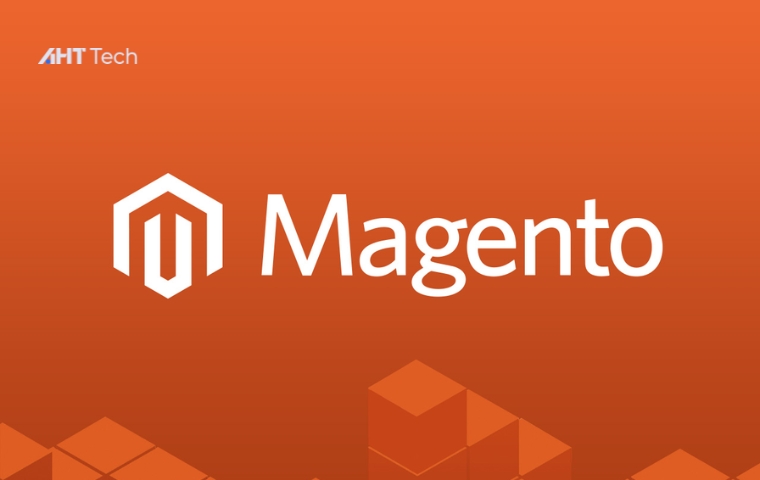
Magento is an open source e-commerce platform that allows you to build and manage your e-commerce website. Known for its powerful and customizable, extensible nature, Magento Commerce offers comprehensive features for small and medium businesses to large scale businesses with flexibility and capabilities extensibility. In addition, Magento comes in different versions with the right innovative functions to build an extremely efficient and secure online eCommerce store. If you want to keep up with the latest features or upgrade to the latest version, you have flexible customization based on leading technology and expertise.
Shopify Plus

Shopify Plus includes all the standard Shopify features, designed with the resources and platform to help merchants achieve higher sales and revenue. With a brand new back office management feature designed specifically for businesses, Shopify Plus serves businesses with its user-friendly interface, extensive application ecosystem, and storage infrastructure. reliable storage. It offers more scalability and workflow, global scalability, and seamless integration.
Salesforce Commerce Cloud
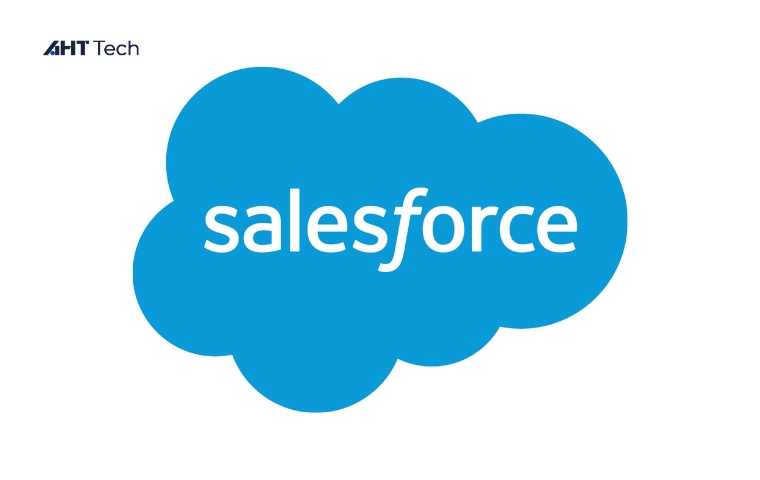
Capable of providing powerful, flexible, and cloud-based solutions, Salesforce Commerce Cloud enables businesses to deliver the ultimate shopping experience for their customers, all personalized. , integration and multi-channel management. In addition, it also applies Einstein AI artificial intelligence to help this system become extremely intelligent. It provides a scalable and secure platform for enterprise e-commerce.
Odoo
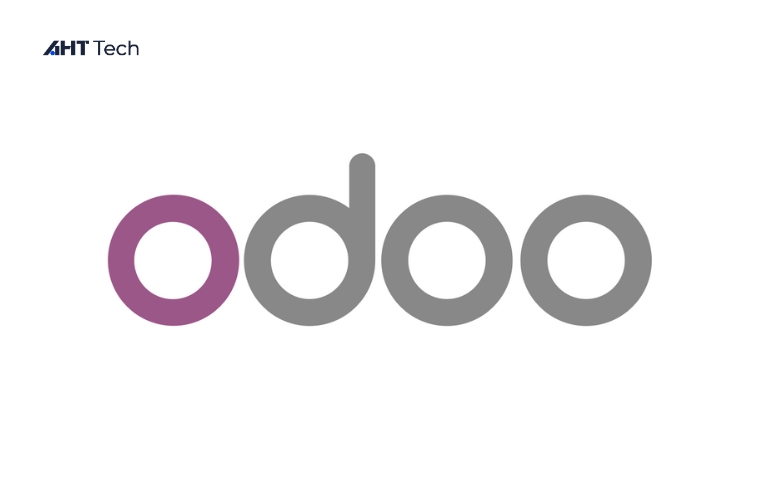
Odoo is an open source enterprise e-commerce platform that integrates basic applications and modules into a single piece of software, allowing businesses to completely edit or add features or create new applications. new modules you want and tailor e-commerce activities to their unique requirements. It offers a wide range of integrated business applications and is quite user-friendly.
SAP Commerce Cloud
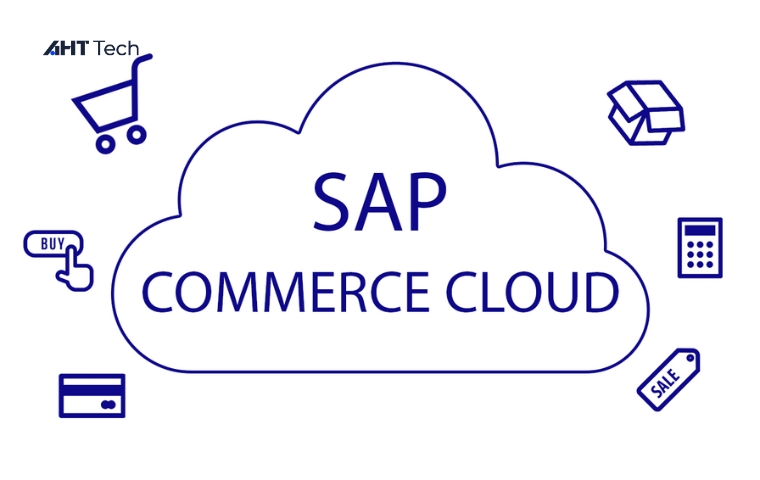
SAP Commerce Cloud is a powerful omnichannel platform that combines scalability, personalization, and full B2B functionality to help you innovate at scale and harness enterprise-wide data for increased profitability and satisfaction. customer satisfaction. It integrates seamlessly with SAP enterprise solutions, it includes an integrated system for marketing, sales and customer relationship management. From there, businesses can create diverse experiences but remains personalized for each customer.
How to Select an Enterprise E-commerce Platform for Your Business
You can make an informed selection when choosing an enterprise e-commerce platform that corresponds to your business goals and requirements, business goals and long-term growth strategy, integration and openness. width, price and maintenance costs. Let’s explore this guide:
Identify your business requirements and goals
Begin by understanding what specific needs your business has. First of all it is necessary to define the requirements and objectives, audience, business size and scalability, cost and budget constraints. In a nutshell, a clear template will be provided so that you can choose the right e-commerce platform for your business.
Consider scalability, performance, and security
Ensure your current and future business integration, storage, redundancy and expansion needs are met. Evaluate performance metrics such as page load speed, high load, and server response time to ensure a seamless and fast user experience that can perform well even during peak times . In addition, preference should be given to platforms that offer strong security features, regularly update data, and comply with security certifications to protect your customer data and business information. .
Evaluate features, integrations, and customization options
Review and evaluate the core components and functionality of each platform to ensure they fit your business needs. Look for features like interface customization, catalog management, payment systems, marketing and sales, order and shipping management, customer support marketing automation, and the ability to mobile responsiveness, security and data protection. Also check to see if the platform allows for affiliate integrations with partners, existing systems, and third-party services. Customization options for ease of use and compatibility such as purchase flow, discounts, multilingual and geolocation, advertising and marketing campaigns are needed to regulate Tailor the platform to your business and brand needs.
Budget considerations and total cost of ownership (TCO)
Evaluate the pricing models and associated costs of each platform. Review the upfront license or subscription fees and ongoing costs associated with upkeep, maintenance, hosting, support, scalability, and future upgrades, and determine the projected budget your business needs. Your business is available to invest in. This helps limit your search for options that are out of your budget. Calculating your total cost of ownership (TCO) helps you gauge your long-term costs and select a platform with a TCO that fits your budget and business needs.
Seek user reviews and expert recommendations
Gain useful and beneficial and in-depth information from other businesses by participating in industry events, reading reviews, product comments and user testimonials. Direct contact with businesses or companies similar to yours. Plus, seek out recommendations, detailed reviews and references from industry experts, attend relevant conferences, and participate in online forums and communities to gather insights. valuable point of view.
Importance of vendor support and ongoing maintenance
Consider the level of support provided by vendor support. Issues are resolved quickly, support and integrations are properly implemented. Assess the availability of technical support, training resources and regular software updates, ongoing maintenance helps maintain high performance ensuring compliance with regulations and standards.
Conclusion
Enterprise e-commerce platforms have become essential tools for developing scalable and feature-rich online businesses. We learned about the definitions, types, benefits, and elements of business e-commerce platforms to choose the right one while researching them.
These platforms enable organizations to develop a solid online presence, generate revenue in a variety of ways, grow their consumer base, expand markets, save costs, and increase revenue. Enterprise e-commerce platforms, with a wide range of features and functions, will enable businesses to efficiently manage huge product libraries, increasing operational efficiency through inventory management warehouse, provide personalized customer experience, analyze the market and identify ongoing trends. The scalability, performance, security, and seamless integration of these systems contribute to their effectiveness in serving the changing needs of online businesses.
Budgetary considerations and total cost of ownership must both be carefully considered when choosing the best business e-commerce platform. Businesses can make informed decisions tailored to their unique needs and ambitions by identifying specific business requirements and goals, evaluating available platforms, and seeking reviews. , solicit user feedback and expert recommendations. However, if you face implementation challenges, you can find a digital commerce and customer experience agency to outsource.
As businesses navigate the digital landscape, enterprise e-commerce platforms will remain critical to enhancing competitiveness, reaching a global audience, and driving success in the marketplace. online school. To harness the power of these platforms, contact us today!


